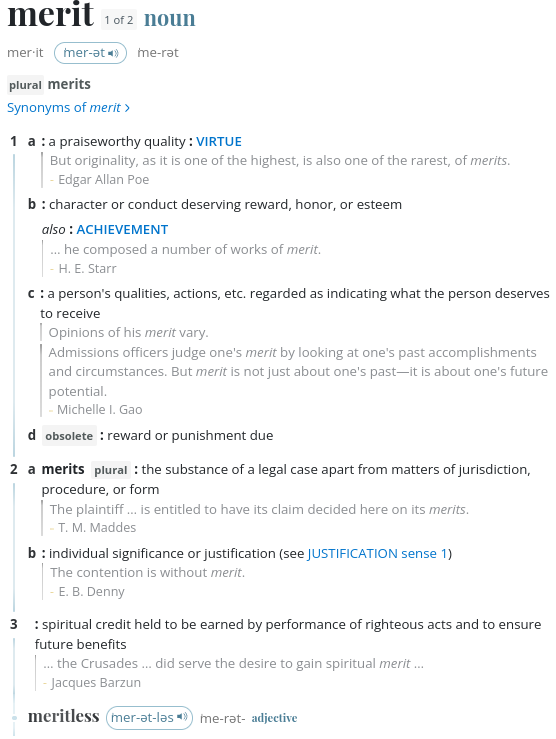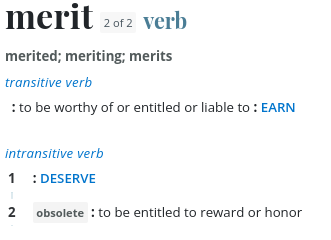Hey!
I've been a user of Free and Open Source Software (FOSS) for quite a long time now, and I believe that the philosophy behind it is to learn and to build upon good software while benefiting the whole community.
Disclaimer: I am not a programmer myself, while I have in past dabbled with programming many times. I just haven't been able to keep myself interested in one particular topic for long enough time to actually progress much.

Image generated with Stable Diffusion AI
I posit, like many before me, that coding anything, but especially FOSS is a meritocracy. A developer who has a need, writes code based on that need, and if they are good in solving the problem and others like the software too, they will flock to the code, learn from it and use it for their own creations, which will eventually lead to more, and better implementations while any buggy and badly written parts get ironed out.
So. May the best code win. Right?
Not always, as there are some great software that has also been discarded for the second or third best solution. Or no solution at all, like what AMD did with their OpenCL framework ROCM when they decided to ditch out already working code on existing (but in their eyes "obsolete") hardware, making OpenCL dependent graphics and video software and AI solutions take quite a few steps backwards in speed and usability on only slightly older AMD Radeon cards.
I don't count this as a fault on meritocracy itself, but on corporate structure and decisions based on money rather than actual quality of code.
"Post-meritocracy"?
After seeing a video by Brian Lunduke on YouTube, I decided to take a deeper look at this interesting manifesto.
I will no go through the declaration point by point below, analyze each one and give out my fact-based opinions:
"Meritocracy is a founding principle of the open source movement, and the ideal of meritocracy is perpetuated throughout our field in the way people are recruited, hired, retained, promoted, and valued."
Like Lunduke, I have nothing to add here. I might not call it "perpetuated", as that in my mind sounds like a loaded word. We'll come to see how in the next paragraphs. Emphasis mine:
"But [sic] meritocracy has consistently shown itself to mainly benefit those with privilege, to the exclusion of underrepresented people in technology."
What the author speaks about here is not in-fact meritocracy. If a person has skills, their representation, whatever that is supposed to mean (I guess they mean skin colour, gender or sexual orientation) does not matter, as they have merit. Hence the author is wrong right from the start.
"The idea of merit is in fact never clearly defined"
Something simply having multiple definitions doesn't mean it isn't clearly defined. All the definitions still point to positive qualities of someone's work, worth and/or skills.
From the Cambridge dictionary, "merit":


"The idea of merit is in fact never clearly defined; rather, it seems to be a form of recognition, an acknowledgement that “this person is valuable insofar as they are like me.”"
Wrong! Here the author mistakes and conflates nepotism and/or cronyism with meritocracy. Meritocracy is absolutely not about favoritism, but all about choosing the right person for the task, as in someone who knows how to complete said task.
In the field of technology, your outer characteristics, like the colour of your eyes, hair, skin, or your gender or sexual preferences do not make you any more or less suitable for the task at hand.
"It is time that we as an industry abandon the notion that merit is something that can be measured, can be pursued on equal terms by every individual, and can ever be distributed fairly."
Quite the contrary. Merit can be measured, as it has a footprint. You track this footprint in your CV, where you list your merits and achievements like past education, employment, years of service, and other projects you've been part of, or conducted yourself. These are all something you can actually measure.
They then list some values they seem to think are "post-meritocratic":
- We do not believe that our value as human beings is intrinsically tied to our value as knowledge workers. Our professions do not define us; we are more than the work we do.
I do not find any conflict between this and meritocracy. Meritocracy does not define your value as a human. It only measures and rewards you on how good you are at what you do.
- We believe that interpersonal skills are at least as important as technical skills.
Yes, interpersonal skills are also a merit. This is where you don't understand what you are talking about. The fact that you can get along is also a valuable trait, hence it is also something valued in meritocracy.
- We can add the most value as professionals by drawing on the diversity of our identities, backgrounds, experiences, and perspectives. Homogeneity is an antipattern.
Your identity and your background or experience however, are not a merit. They may be something you can draw growth and inspiration from, but by itself they are not something you can really consider a merit as they do not carry any tangible value outside your personal sphere. Diversity of appearances does not often translate to diversity of thought, instead it may easily mean forcing uniformity of thought.
- We can be successful while leading rich, full lives. Our success and value is not dependent on exerting all of our energy on contributing to software.
I don't disagree with this one. Yes, you need to take breaks. Nothing to do with having or not having a meritocracy though.
- We have the obligation to use our positions of privilege, however tenuous, to improve the lives of others.
This one I don't agree with. I believe that I have no right to impose my values on anyone else, and conversely I believe that nobody else has a right to impose theirs upon me. We all have agency, and if you want to obligate me or others to do your bidding, it is plainly stripping us of ours. Thus it is objectively not right. You want to impose conformity, you will end with a draconian, autocratic system.
- We must make room for people who are not like us to enter our field and succeed there. This means not only inviting them in, but making sure that they are supported and empowered.
Speak for yourself, this is not something I agree either. Like the previous point, it is up to each individual to judge others by their character and not by their skin. If someone clearly does not deserve to be "supported and empowered", there is no obligation for anyone to do so.
I am not religious, but there is certain kind of wisdom in the saying that "God helps those who help themselves". And no I am not speaking of those who are unable to help themselves, like those with disabilities and such. There will always be those special cases that need help and can't do without, and they are clearly an exception.
- We have an ethical responsibility to refuse to work on software that will negatively impact the well-being of other people.
How do you make the difference? Let's say you program a software for a radiation treatment and X-ray machine for hospitals? It can, depending on your skills (as a merit), negatively impact the well-being of a huge amount of people.
- We acknowledge the value of all contributors as equal to the value of contributors who are engineers.
And if they screw up the coding of that medical device that's supposed to keep people alive if they know diddly-squat about programming? Someone dies as a consequence, Still equal?
- We understand that working in our field is a privilege, not a right. The negative impact of toxic people in the workplace or the larger community is not offset by their technical contributions.
If "toxicity" means letting people know that their code can kill people, I am all for being toxic.
- We are devoted to practicing compassion and not contempt. We refuse to belittle other people because of their choices of tools, techniques, or languages.
Compassion means little when your code kills someone.
- The field of software development embraces technical change, and is made better by also accepting social change.
It doesn't make bad code any better though. Best case, it might make someone feel a bit better about their bad code, worst case it will end up killing a lot of people and make them feel a lot worse.
- We strive to reflect our values in everything that we do. We recognize that values that are espoused but not practiced are not values at all.
Everyone does that. It's just that your values are not always the same as other people's values.
My conclusion and thoughts on diversity and inclusion:
While diversity and inclusion are important in today's multicultural societies, they should not come at the expense of meritocracy. A diverse workforce can bring different perspectives, but it should still be built on the principle of rewarding skill and talent. Inclusivity at best, is trying to insure everyone has access to opportunities, but it doesn't mean lowering standards or compromising on quality.